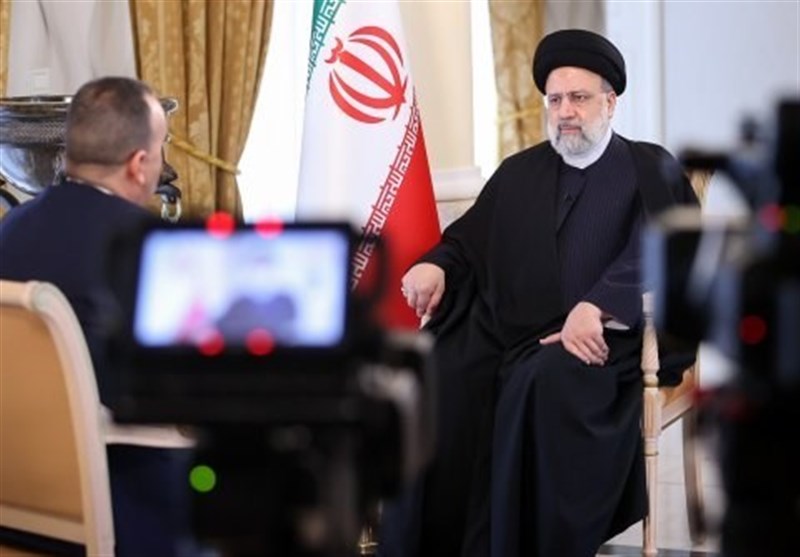Alwaght- The US tried to spread Iranophobia across the region in order to isolate Tehran but failed, Iranian President Ebrahim Raisi said in an interview with Algeria's National Broadcasting Company during his visit to the country.
"Iran's enemies, especially the Americans," have constantly tried to "engender Iranophobia and bring Arab Islamic countries closer" to Israel, but have failed, said the president. "They wanted to isolate us, but Iran did not become a pariah. Today, the country is more widely represented than ever before at the platforms of regional, inter-regional and international levels," Raisi emphasized.
He added that attempts were made to "normalize relations between Muslim countries and the Zionist regime in order to make it harmless," but even these actions failed to gain any results. Those countries that maintained relations with Israel in the past "are now ashamed of these actions even in front of their own people," Raisi said.
Asked about Iran's nuclear program, the president pointed out that the Europeans and Americans "have a problem with Iran itself, not [its] nuclear bombs." According to Raisi, they want to "put pressure on a strong independent Islamic republic and its own nuclear industry." "We have repeatedly stated that we will use atomic energy for peaceful purposes only, and so far there has been no deviation from this course. The International Atomic Energy Agency (IAEA) oversees our nuclear industry and has reported 15 times that the nuclear industry in Iran is of purely peaceful nature," the president recalled.
Raisi's administration has been focusing on closer relations with neighbors, especially Persian Gulf states, as an instrument to beat the Western efforts to divide Tehran from its vicinity and isolate it.
In March last year, with a Chinese mediation, Tehran and Riyadh normalized ties after 7 years of strained ties. Their rapprochement catalyzed Iranian détente with other Persian Gulf states including Bahrain.
Iran more than once said that it is interested to continue dialogue on the 2015 deal as way to ensure it's neighbors and the West about peaceful nature of its nuclear program, but the US and its Western allies insist on their unilateral demands.
Iran’s Foreign Minister, Hossein Amir-Abdollahian, in an exclusive interview with Lebanon’s Al-Mayadeen channel on February 28 confirmed that the Islamic Republic and the United States keep exchanging messages on various topics, including the 2015 nuclear deal.
"The American side, in some of these messages, hints at its desire for all parties to return to their obligations as per the Joint Comprehensive Plan of Action (JCPOA). On our part, we have expressed our readiness to welcome recommendations that would allow the return to commitments, but also annul the unilateral sanctions imposed on Iran," Amirabdollahian maintained.



























